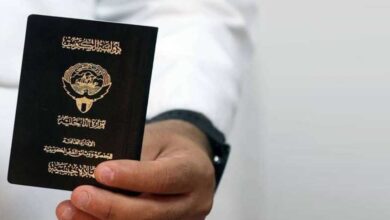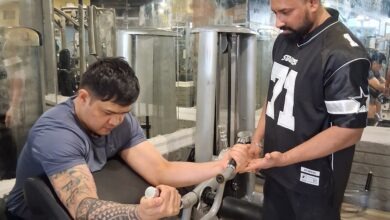Kuwaiti women play a pivotal role in National Development

By Reaven D’Souza
Executive Managing Editor
Empowering women is critical for achieving sustainable economic development and in nation-building efforts, as it unlocks the latent potential of half the country’s population, catalyzes economic growth, social well-being, and sustainable development. Additionally, empowering women is a prerequisite for improving their social, economic, political, and health status.
Female empowerment is a fundamental human right that is also key to achieving a more equitable, peaceful, and prosperous world. An empowered woman is often described as someone who understands her self-worth, can make their own choices in personal and public life, has equal access to opportunities and resources as men, and has the ability to influence social change to create a more just and equitable social order nationally and internationally.
Based on this broad definition, women in every part of the world continue to face discrimination and inequities that pose threats to their lives, livelihoods, and well-being. Stark facts from United Nations agencies show that globally, one in 10 women continue to live in extreme poverty; one in three women experience physical or sexual violence; women earn, on average, 20 percent less than men in labor market, and have less access to social protection, and financial institutions.
A prerequisite to empowering women is education. Girls who are educated usually pursue meaningful work later in life and contribute to their country’s sustainable economic development benefiting societies and humanity at large. Girls with just ten years of basic education are found to be four times less likely to get married young, and seek employment outside their homes. enabling them and their families to lead more stable, prosperous lives.
Educated women are more likely to be employed, entrepreneurial, and contribute to the development of the nation. Moreover, economically independent women not only lift themselves and their families out of poverty, they are also likely to seek better healthcare, education, and diet for themselves and their children, leading to improved health, education, and nutrition outcomes.
Empowering women also makes them agents of change capable and willing to participate in decision-making processes and contribute to vibrant, stable, equitable, and inclusive communities. Redoubling on strengthening women’s capabilities and providing them with growth opportunities is a win-win situation that benefits individuals, families, communities, and the nation as a whole.
Kuwaiti women have always aspired for greater empowerment in society. However, in the past, a combination of traditional patriarchy, cultural stereotyping, and conservative interpretations of religion posed formidable social barriers that prevented them from realizing their full potential and engaging in the public sphere. Women’s desire for empowerment in the social, economic, and political milieu were revived following the country’s independence in 1961, and the acceleration in pace of social and economic development that ensued.
A key part of this empowerment came through education. Establishment of Kuwait University in 1965 allowed women, who were earlier unable to pursue higher studies abroad, to enrol in increasing numbers. Today, female students represent nearly three-quarter of the university’s student body, and account for almost 90 percent in fields such as allied medical sciences, pharmacy, and dentistry. Unfortunately, this sizable educated talent pool is not adequately mirrored in the workplace, where leadership positions still remain largely a male domain.
Although Kuwaiti women now constitute 60 percent of the government workforce; 48 percent in the private sector, they represent only 28 percent of leadership positions in state institutions, and even less in private entities. It is noteworthy that in select public entities, the proportion of women in senior positions is significantly higher. Raising the overall rate of Kuwaiti women in leadership positions ensures the effective utilization of their expertise in social, economic, and political arenas.
Gaining political rights in 2005 was another major step in the progress of empowering women, enabling them to prove their acumen, utilize their capability, and leverage their talents toward nation building at the highest levels. Kuwait observes Kuwaiti Women’s Day annually on 16 May to mark the historic granting of full political rights by Parliament in 2005.
Kuwaiti Women’s Day focuses on the crucial role that women play in national development, recognizes their achievements across domains, and pays tribute to their leadership, resilience and contributions to society. In his message on this year’s Kuwaiti Women’s Day, His Highness the Amir Sheikh Meshal Al-Ahmad Al-Jaber Al-Sabah highlighted the extraordinary role Kuwaiti women play in shaping the nation’s journey toward progress and prosperity.
Recalling their historic sacrifices and noble stands, the Amir lauded the unwavering loyalty and patriotic spirit of Kuwaiti women, whose courageous service and dedication to the homeland remain a source of national pride. Meanwhile, the government affirmed its commitment to empowering Kuwaiti women and giving them a greater role in serving their country and society at all levels.
In line with this commitment, the government has been dismantling hindrances to the socio-economic development of women and incorporating women’s empowerment into its policies and national plans. These initiatives are aligned with the New Kuwait Vision 2035, which recognizes the crucial role of women in nation building, and the UN Sustainable Development Goal 5, which focuses on gender equality and empowering women.
Towards this end, the government has recently pushed through several key legislations. This includes abolition of Articles 153 and 182 of the Kuwaiti Penal Code, enhancing protection for women in alignment with Articles 8, 9, and 29 of the Kuwaiti Constitution. The Constitution emphasizes equality for citizens in human dignity, opportunities, and in public rights and duties before the law.
In a historic move, on 16 March of this year, Kuwait repealed Article 153 of its Penal Code, which was in place since 1960 and legalized reduced sentences in ‘honor killings’ of women. Repeal of Article 153 is a significant victory for women’s rights activists who had long campaigned for abolishing this pernicious law. It is also seen as a step towards gender equality and justice, as such ‘honor’ killings will now be prosecuted as murder. Kuwait also abolished Article 182 of the Penal Code, which previously allowed kidnappers to escape punishment if they married their victim. On 29 April, the Cabinet issued a draft decree-law repealing the article, noting that this was in alignment with Kuwait’s constitution, human rights commitments, and international conventions.The move aims to strengthen justice, protect victims, and eliminate legal loopholes that undermine basic human dignity.
Additionally, Kuwait amended Article 26 of Kuwait’s Family Law, raising the legal age of marriage from 16 to 18 for both genders. The amendment—in line with the minimum legal age for marriage in many parts of the world—is expected to drive social and health benefits for women. Raising legal marriage age leads to better reproductive health outcomes; provides more time to pursue education and develop skills that increase economic opportunities and independence, and recognizes the rights and autonomy of women.
Kuwait’s strong advocacy for women is also mirrored in its ratification of multiple international conventions, including the Convention on the Elimination of All Forms of Discrimination against Women (CEDAW); the International Covenant on Civil and Political Rights (ICCPR); and the Protocol to Prevent, Suppress and Punish Trafficking in Persons, especially women and children.
Global indicators are reflecting Kuwait’s progress in women’s empowerment. According to the Georgetown Institute for Women, Peace, and Security, Kuwait advanced from 123rd to 61st place among 177 evaluated countries in the Women and Peace Index,; improved by 10 points in closing the gender gap; and led the Gulf region in the 2023 Women’s Empowerment in the Private Sector Initiative. Women’s empowerment is not only crucial to gender equality, it is also key to empowering the nation.












